#because their definitions of love are fundamentally different! she thinks she loved him and he thinks she didn't but that's not the point!
Text

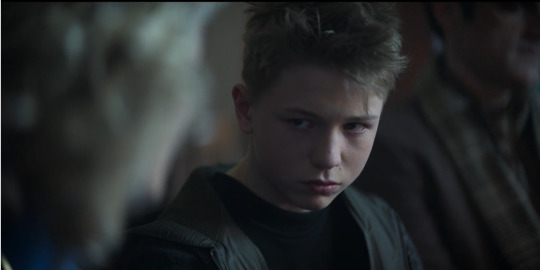
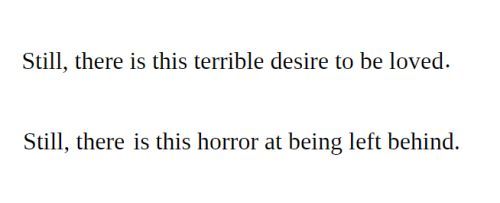
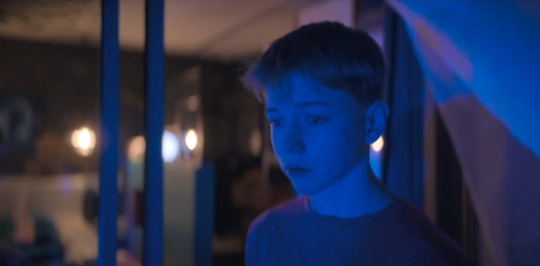
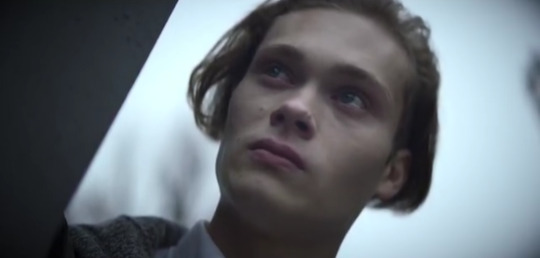

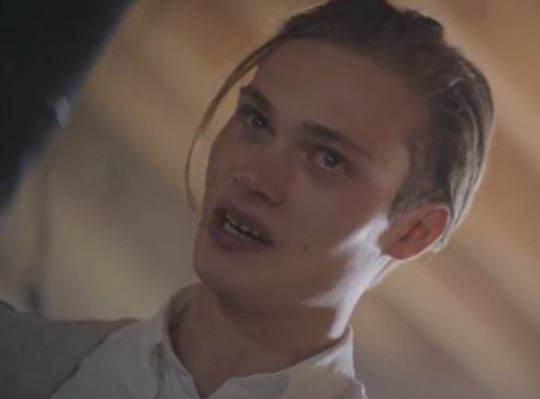
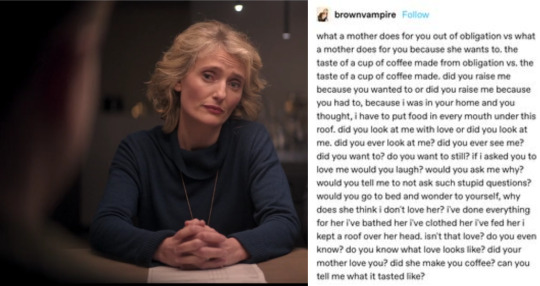
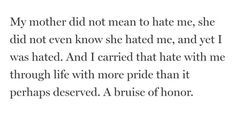
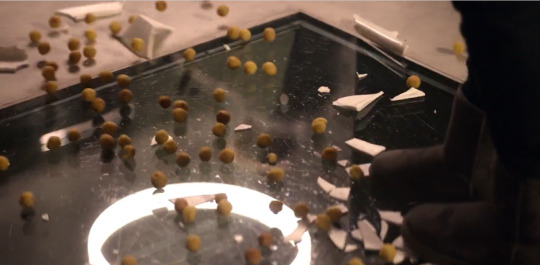
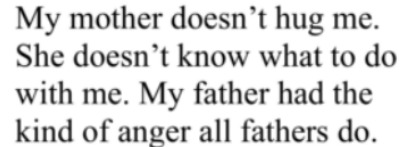
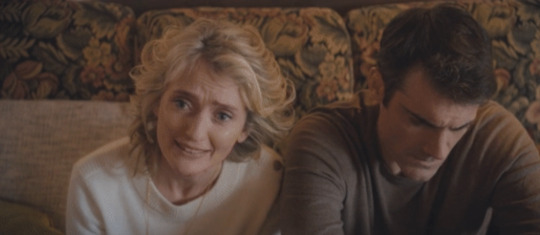
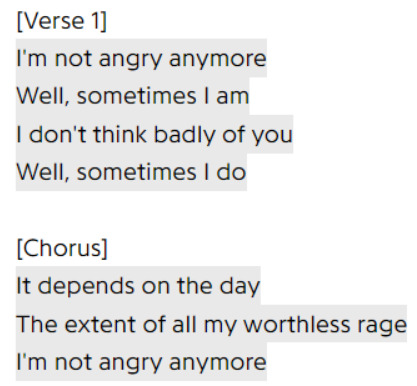
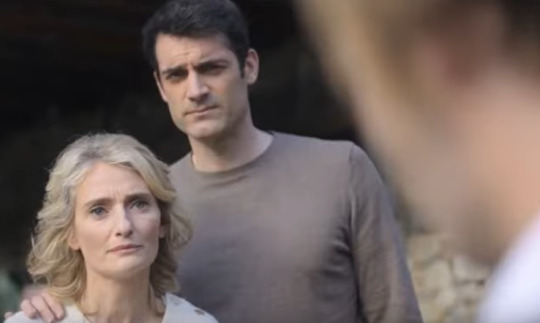
Victor Deslandes & Alice Deslandes
[1."Poplar Street", Chen Chen / Tumblr user @metamorphesque // 2. Parallels screenshot // 3. "The Hours", Michael Cunningham // 4. Parallels screenshot // 5. Parallels screenshot // 6. Young Volcanoes, Fall Out Boy // 7. Parallels screenshot // 8. Parallels screenshot // 9. Tumblr user @brownvampire // 10. Ella Wilson // 11. Parallels screenshot // 12. "It lingers for your whole life", Katie Maria // 13. Parallels screenshot // 14. Interlude: I'm Not Angry Anymore, Paramore // 15. Parallels screenshot]
#disney parallels#parallels#paralleles#disney paralleles#web weaving#ok so i actually made this right after i made that text post. but i've been working up the nerve to post it ever since. so here it is now.#anyways have a web weaving.#they're very interesting. i have a few more thoughts about them but not enough to make a post about.#toxic mother-child dynamic where the kid thinks theres a lack of love but the real issue is that the mom never bothered to prove the love..#like. it's so much easier to believe she never loved him that it is to realize she loved him and just never did anything useful about it?#and then it's like. so much complexity because like. “admit you never loved me” she's never gonna do that!#because their definitions of love are fundamentally different! she thinks she loved him and he thinks she didn't but that's not the point!#the point is that he didn't *feel* loved. that's always been the point.#love that doesn't guide action is never going to be enough and that's where so much angst potential lies!#especially considering the hurt and grieving child and the favoritism and the detachment and the affection and the complexities! angst!!
12 notes
·
View notes
Text
thinking about that meta about the endless not really transforming into different forms but rather being all forms simultaneously and just being perceived differently from different points of view. and yeah
--
"So, Death was telling me something interesting about you yesterday," Hob says, sipping on his coffee.
Dream pouts, though he would probably deny that that's what it is. "You are gossiping with my sister behind my back?"
"You know we talk."
"Gossip," Dream mutters again, steps taking on a pace adjacent to an irritable trudge. "What unseemly things does she say about me?"
"Why do you think she says mean things about you?"
"Every time we speak, she calls me an idiot," Dream says, and Hob lets out a startled laugh.
"That's what siblings do," Hob reminds him. "You know she loves you."
"Hmm." Dream plucks Hob's coffee from his hand, taking a ponderous sip. "What praises does she heap upon me, then?"
Hob shakes his head in fond exasperation. "She says that you -- Endless, that is -- can like... change your appearance for different people? Or creatures? Like. If you met a cat you would appear as a cat to them?"
"You do not quite have the right of it," Dream says. He hasn't returned Hob's coffee, despite having insisted that he 'did not require mortal sustenance' when Hob had offered to get him his own.
"What's the right of it, then?"
"It is not for human minds to comprehend."
Hob groans. "At least humor me and try to explain? Do you turn into a cat or not?"
"I do not turn into anything," Dream says, offended. "How base and common."
"Shapeshifting is base and common, I'll make sure to tell all the shapeshifters I know," Hob tells him seriously.
Dream lets out a sigh that Hob recognizes as meaning fine, I will answer your inane questioning about the nature of my existence. The funny thing is, now that they've gotten over the six hundred year barrier of what's your name and what do you do for work, Dream delights in talking about his creations. He will speak at length about his work given half a chance.
It's the personal -- whether that's something as mundane as how he takes his tea or as fundamental as what an Endless even is, exactly -- that's been hard to get at.
"I am a cat," Dream explains.
Hob stares at him, looking up and down at the very man-shaped figure walking beside him as if he needs to double-check. "You're definitely not a cat."
"Yes, I am," Dream says. He does not appear to be joking.
And apparently Hob is still thirteen years old all these centuries later, because he says, "Prove it."
"You cannot see it because you are not a cat," Dream sighs, as if this is truly a tragic occurrence.
"Maybe I am a cat," Hob suggests, tucking his hands in his pockets, all casual. "How would you know?"
Dream gives him a sidelong look. "You are not a cat. Though perhaps you would be more peaceful as one."
"Doubt it. But wait, so, if I was a cat I would be able to see your cat form?"
"In essence, yes. But. You speak as if I would be donning a coat. These are not forms. Merely fragments. Simultaneous angles on a whole."
"Fragments," Hob repeats. He works it through like a particularly hard math problem. "Hang on. So. You're also a cat now. If we met a cat they would see a cat."
Fuck, this is getting weird.
Dream looks proud of Hob for getting it. "Yes."
"Could have attempted to explain that instead of just saying I am a cat," Hob tells him. "I also still maintain that you are not actually a cat."
"I am as much a cat as I am a human," Dream says.
"So, not," Hob says.
"No," Dream agrees. "Because I am Dream."
"You're a nightmare, is what you are," Hob mutters, and Dream smirks.
"That, too."
They've been walking in silence for another few minutes when Hob asks, "What's your real form?"
Dream frowns. "All of my forms are real, Hob."
"Sure, you look like this or that to different people. What do you look like to yourself?"
"All of my forms are real," Dream insists.
"So what I'm seeing now isn't some kind of default? Are you just always different? Is this like that we don't know how other people see colors 'cuz everyone's eyes could be different thing? Or is there any internal consistency to you?"
"I don't know what thing you're referring to."
"What I'm trying to find out is did I invent this version of you in my head?" Hob asks, getting stressed about it now. Did his subconscious somehow decide this was what Dream should look like? Presumably Dream knows what he looks like to Hob. What if he doesn't like it? "Did I just decide yep that's what dreams should look like in 1389 and you've been stuck wearing black ever since?"
Dream chuckles. Probably amused Hob would ever think he had that much power. "No. There is what you call internal consistency in my appearance. Different creatures, cultures, and so on will see different aspects of me, but there is not a different aspect for each person. It is not infinite."
Oh, thank god. "So, you want to look this way."
"I suppose."
Never a straight answer with him.
"Well, just for the record," Hob says, "I fell in love with the entity but I happen to quite like the shape as well."
"The shape," Dream repeats, with a smile.
"Here's where you're going to tell me you're also a triangle or something."
Dream is silent.
Fucking hell.
"I'm not even going to ask," Hob decides, forcibly moving on. "I have another question."
"You have many," Dream observes.
"That's what you love about me," Hob says, and Dream tilts his head as if conceding the point.
"If there was a human culture that thought of dreams as represented by cats," Hob starts, "they might see you as a cat?"
Dream sips at Hob's coffee, considering. "I suppose."
"And was there ever one?"
"No."
Hob lets out a long breath. Dream is frustrating as hell to talk to sometimes, but Hob can't say he doesn't enjoy it anyway, doesn't enjoy the puzzle. "Was there ever any culture like that, though? That saw their dream representation as something other than a person?"
"There was one that thought dreams lived in bubbles, therefore I was the reflection of light along a bubble's curve," Dream says, expressionlessly. As if that isn't wild and fascinating. "However, that civilization has since disbanded and morphed into different forms."
"Which civilization was that?"
"You would not know it," Dream says.
Hob tips his head back and groans. "God, you're like an edgy teenager who knew that indie band before they were cool. Oh, which band? No, you wouldn't know them, they're too niche, too underground."
"Underwater," says Dream. "It was a civilization of dolphins."
Hob trips over a crack in the road and just manages to catch himself. Dream stops by his side, watching him with some concern, like he worries Hob might break himself in his clumsiness.
"The way the world looks to you must be insane," Hob says, staring at Dream.
Dream's lips tip up in the faintest smile. "Human perspective is narrow."
"Clearly. I wish I could see all your other forms. Must be amazing."
"You wish to see them?" Dream sounds surprised.
Hob scoffs. "Of course. But it's not sounding very possible."
Dream inclines his head in agreement.
Then a thought occurs. "Wait." And god, Hob has said a lot of stupid-sounding things in his life but this is about to be one of the worst. "If I pretend to be a cat, can I see your cat form?"
Dream can never answer a simple question directly, but apparently this absurd query is fine. "I suppose it is possible in theory for you to see it. But pretending is not enough. You would have to wholly assume the perspective of a cat. I do not know if it would be possible in practice."
Hob's never needed much more encouragement than that to try something. "Alright. Hold my coffee."
"I am already holding it," Dream points out.
"Hush. I'm being a cat."
How he's supposed to do that, Hob doesn't know. He paces back and forth before Dream, squinting in the sunlight. He looks at him from every angle. He tries to imagine what cats might dream of. Mice? Freedom? Sleeping in warm places? Their dreams must be feeling and instinct-driven, not intellectual.
Hob crouches down, looking up at Dream from as close to a cat's height as he can manage. Dream merely raises an eyebrow.
"Are you going to meow at me?" he asks mildly.
"Meow," Hob says, and Dream's mouth pops open in a round o of surprise that is one hundred percent worth the indignity of kneeling on a public street and meowing. "What do cats dream about, anyway?"
"World domination," Dream says solemnly.
"Haha," Hob says, but Dream doesn't take it back.
"Alright, I'm channeling megalomania," Hob tells him, shutting his eyes. "I'm channeling my inner despot."
"And an imposing one at that," Dream observes, looking down at him.
"Quiet, subject, can't you see I'm in the middle of ruling with an iron fist? Or paw?"
"I am quaking in my boots," Dream says. "Please, show mercy."
Hob squints back up at him. God, he's really trying, but it's hard. Cats live close to humans, but they are still so alien. Off in their own worlds, their own battles and hierarchies.
"Will it work if I lick you?" he asks. "Like how cats groom each other."
Dream blinks at him, once, twice, slowly, catlike, which he must be doing intentionally, because he's a bastard like that. "This is, as I believe you would say, getting odd."
Yeah, it is getting fucking odd.
"Perhaps you should try imagining my female form," Dream suggests, and if Hob weren't already on all fours on the sidewalk he'd have fallen over. "It is human, and may be easier."
"You have that?" Hob squeaks, scrambling back to his feet. "But I thought it was like, a species perspective thing? Do women just see you as a woman, then?" Then he shakes his head. "No, that's way too simplistic."
"Women can see me like this as well," Dream says. "Or however their culture dictates."
"So why would someone see you as one gender or another, then? Just a culture thing? Preference?"
"Why do some people see God as a woman?" Dream asks the air.
Hob groans. "You are impossible."
Dream smirks.
"Or maybe you just like being unknowable," Hob guesses.
"Perhaps."
"Perhaps. Yeah, perhaps. I'm sure." Hob cracks his knuckles. "Alright, my unknowable cosmic entity of a significant other, let's see if I can turn you into a woman."
Dream stares at him flatly, but Hob can see the slightest uptick at the corner of his mouth.
Hob still doesn't know what exact perspective he needs to see Dream as a woman. Maybe if he just believes really really hard he can make it happen. Force of will. It's how he'd always planned to make himself immortal, anyway, absent a fortunate encounter with one prickly dream entity.
He stops looking at Dream, and tries to look through Dream. Tries to imagine how it feels to see the true depths of his eyes, how the cosmos in them go straight to infinity. He tries to see around the way the light reflects off of and shapes Dream's form to the shape within, like a sculptor seeing the body in the marble before it's carved. Hob is no artist, but he tries.
And he knows Dream. He may not know all these angles on his form, but he knows Dream, the entity, the person. They have had a long friendship, Hob and the concept of dreaming.
And just like that, the perspective shifts. For a split second, Hob sees an infinity before him, the eternity of all existence condensed in all its brilliant, glowing facets--then his brain skids around it to avoid going mad, latches onto an angle, and slams back to earth.
Hob sways, rubs at his eyes, and then laughs hysterically. "Fuck!"
"Hob?" Dream sounds uncertain now. "Are you well?"
"I think I just glimpsed cosmic knowledge never meant for my mortal eyes, or whatever," Hob tells him, somewhat maniacally. His ears are kind of ringing, eyes swimming in the afterimages of a very bright light. "You're incredible, do you know that?"
"As you judge," Dream says.
Hob finally drops his hands from his eyes.
And immediately slaps them over his mouth, letting out a sound so high-pitched and manic he hadn't thought his vocal cords could manage it. "Holy shit."
Dream frowns. "Are you well?" he asks again. "Perhaps I should not have allowed--"
"I fucking did it," Hob whispers, mostly to himself. "Oh my God. You're a woman. I think? You look like one. I guess?"
Dream looks down at himself. Hob wonders what he sees--does he see what Hob sees? Or does he see the incomprehensible mass of everything that he truly is under the human trappings?
"Ah," he says, and presses a single fingertip to one of the breasts that he now has, prodding it curiously. "It appears that I am."
Okay, so he can see what Hob sees. Good to know.
"Yup," Hob says. He can't seem to steady himself whatsoever. "Yup, yup. You are."
"Impressive, Hob," Dream remarks, looking up at him again with a smirk. His jaw is narrower now, his lips plusher, but God, it's that same fucking smirk that drives Hob insane.
Hob wonders if Dream's female form is also bound by some limitations on appearance the way his usual form is. He hopes so, because it if turns out he managed to manifest Dream's tits to fit his own subconscious desires, he might just have to choose Death at last.
Hob still has his hands over his mouth. He makes himself drop them.
Dream frowns at his silence. "Are you not pleased?"
"I'm very shellshocked and reorienting my view of the universe," Hob tells him. "Also, you're very beautiful and it's just a lot all around."
That smirk again. Whatever minor amount of immunity Hob has developed over the centuries is obliterated by the new shape of him. "Ah."
"Ah," Hob echoes. "Can I kiss you?"
"You may."
Hob does so with his usual enthusiasm, perhaps more, as he does so love novelty. Dream tastes much the same, feels much the same to his hands, and yet not, like Hob's different perspective on him has altered the angle of his touch. Hob runs his hands indulgently over the softer curves of him, settling them on Dream's waist.
"Dear heart," he murmurs into Dream's mouth. "Most beautiful thing."
Dream makes a soft sound and rests his face against Hob's.
They stay there for a long moment, frozen in the middle of the sidewalk. Then Dream asks, "Would you have still kissed me if I was a cat?"
"On your little furry head, yes," Hob says, and pecks his cheek. "I thought you were a cat."
"I am," Dream says.
Hob groans. "Enough, I'm getting confused again. Let's stop with the metaphysics and go home and do something less headache-inducing."
"Like playing with the new toy you've found yourself?" Dream asks, raising an eyebrow, but obligingly lets Hob wrap an arm around his waist and tug him along down the sidewalk.
"Pretty much!" Hob agrees. "If you're amenable."
"I suppose I can bear it," Dream says solemnly, as though being kissed and coddled and worshiped is the greatest hardship of his eons-long existence.
Then he says, quietly, "You are singular, to perceive me thus."
"As..." Hob looks at him as they walk, looks at the elegant cut of Dream's cheekbone and the sweep of his eyelashes, the longer fall of his hair. "You mean, in more than one... facet?"
Dream nods. "You... see me. The truth of me. And still, you look upon me kindly."
"What other way is there to look at the one you've loved your whole life?" Hob asks, throat tight.
Dream leans into his side, and Hob presses a kiss to his temple, holding there for several steps. And he continues to hold him close as they go on, keeps his unfathomable boundless entity within the circle of his arms, where he can keep on fathoming him.
#really a toss up what's making hob lose his mind more. the eldritch vision of dreaming as a concept? or dream's tits?#listen he's a simple man#a simple and very bisexual man#dreamling#dreamling fic#dream of the endless#hob gadling#my writing
2K notes
·
View notes
Note
may i ask your opinions on what ivan is truly like ?
( without pretending to be someone or something else entirely ? )
Okay !! Finally back to answering asks !! Once again, please be mindful of the fact that these are mostly my own personal thoughts. Always take them with a grain of salt.
The thing is, Ivan is an incredibly difficult character. He was written to be complex and multi-faceted, literally having more than just one "face". His actions almost always have another layer of depth to them and he tends to contradict himself, further complicating people's perception of him. It's not easy to pin him down, and that was exactly the intent. They made sure that the viewers wouldn't be able to fully grasp his emotions.
( I find this fact rather funny, because in one of the behind posts QMENG herself says that sometimes Ivan does things she cannot understand. The creators just allow Ivan to be complicated. He is what he is, and while there are undoubtedly reasons for it, the full truth remains unknown to us. )
Regardless, this is what I personally think.
Ivan seems to define himself by his imperfection, so much so that his actions and perspectives are influenced by his deep self-hatred. It's established that Ivan is "lacking" something, he is fundamentally different from others. Ivan builds himself around this since he literally has nothing else. He defines himself by his lack of definition. The fact that he is different and needs to be "cured". Ivan grows attached to the qualities that he "lacks", drawn to the biggest personality in the garden like a moth to a flame. He is fascinated, not envious, and I think that says a lot about him. He places those qualities on a pedestal, believing them to be so much better than himself. He feels that it's something he will never achieve or deserve, something he can't have.
It's interesting that the only time we can pin Ivan as "envious" is not when he's faced with his opposite, but with his parallel. Someone he believed to be just like him.
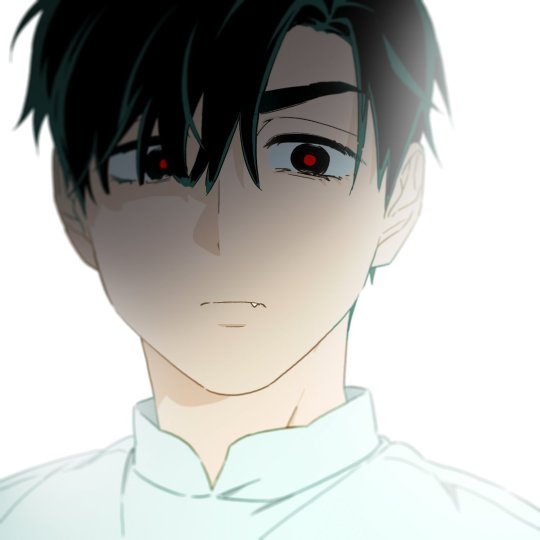
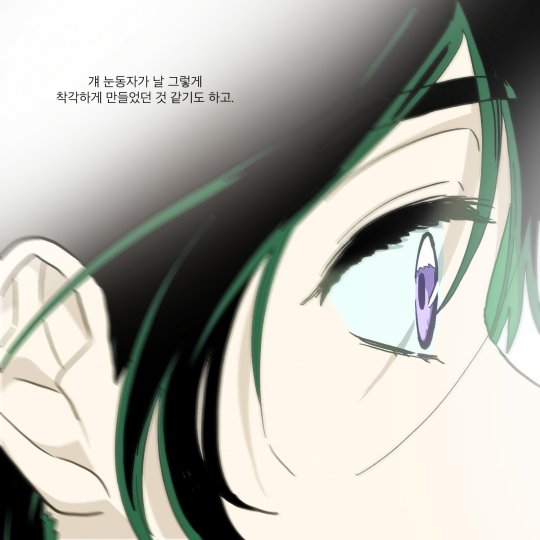
One thing about Ivan is that he is (unsurprisingly) lonely. Since his entire life is defined by this feeling of separation from others (either literally through the segyein's selection or more intangibly through his mental and emotional difference from others), Ivan feels constantly isolated. Nobody has been able to properly understand him, which further worsens the feeling that something is wrong with him.
When he finally finds someone that he can relate with, it brings him a sense of relief. Note that when Ivan refers to (what he perceives as) their similarity, he uses derogatory language. Twisted. This is how he views himself.
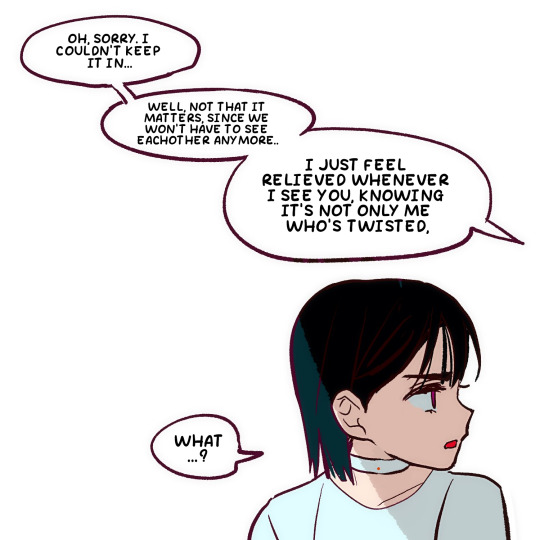
( translation is by @sorrowcure ! )
Compared to his interactions with others, his confrontation with Sua is uncomfortably honest. Ivan is most critical with the person he relates to, further emphasizing how deeply critical he is of himself. Ivan is not envious of Till or Mizi, who are so fundamentally different from him, he's envious of Sua because she is just like him yet has something that he doesn't.
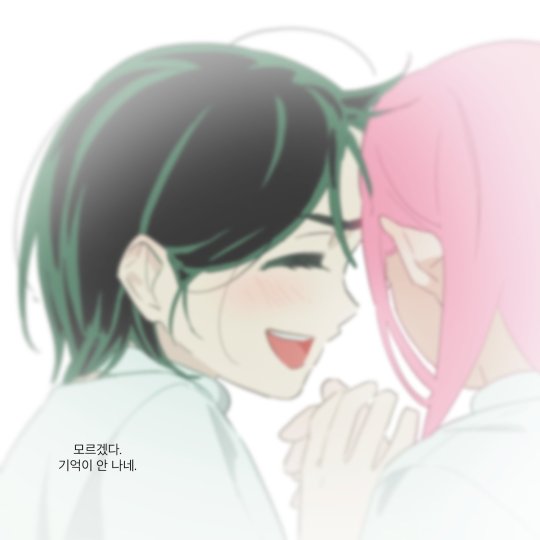
It may feel unfair for the one person you saw yourself in to accomplish something so out of your reach. Her love was reciprocated in full, adored and revered by the person she loved most. They weren't the same, after all. It reinforces what he always believed to be true: he was alone.
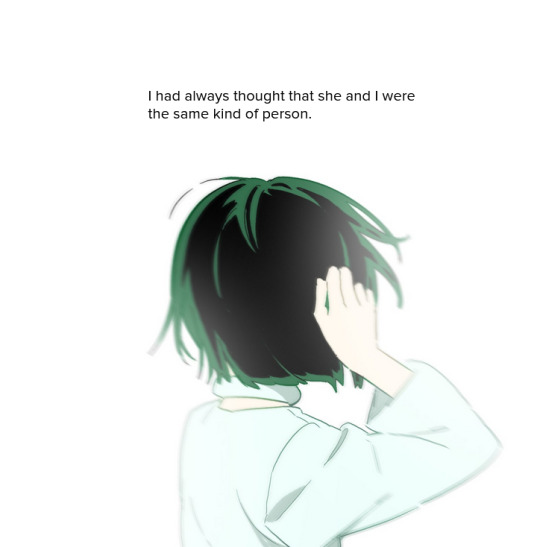
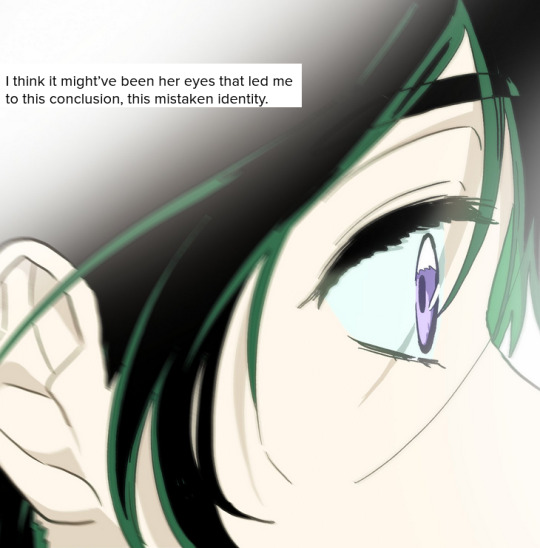
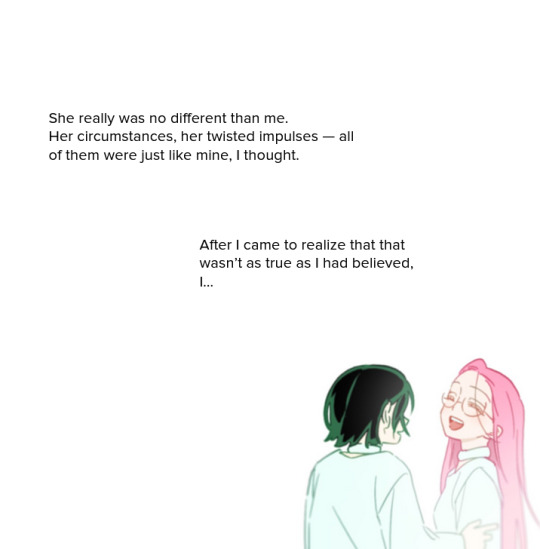
( translation by @/oreganocactus on Twitter! )
There are many other instances of Ivan's self-deprecation and low sense of self-worth that leak into his behavior, such as down-playing himself in his interview, referring to his own feelings as "shallow", convincing himself that he was never truly cared about, etc. His deep dissatisfaction of himself rises to the surface quite often, shown in the way that he takes pride in his achievements (his work), yet cannot view himself as a person in a positive light.
INTERVIEWER: What do you think is your charm?
IVAN: I can't really think of any, because I think I have more flaws (haha),
To me, a lot of the "actual" Ivan can be seen in his younger self. It's not a complete display of what Ivan is truly like, obviously. He was a child and hadn't yet developed in certain areas. Still, it's a period in Ivan's life where he didn't mask or play up a different image. The quiet, stoic, and blunt Ivan seems to be a more genuine side of him, at least compared to his more charming persona. QMENG considered Ivan with his hair down to be "most like himself", and I think it's no coincidence that the most memorable version of Ivan with his hair down is his child self. The infamous Bowl Cut Ivan.
With this fact in mind, I also find it no coincidence that in ROUND 6, where Ivan is presented as a "perfect actor" in costume, he starts off with his hair slicked back.
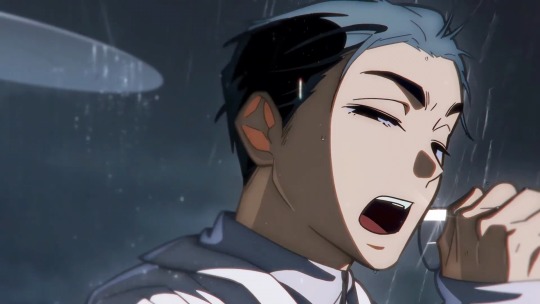
And when he finally drops the mask, when he acts out of his own volition, his hair falls onto his face. Hair down, most like himself.
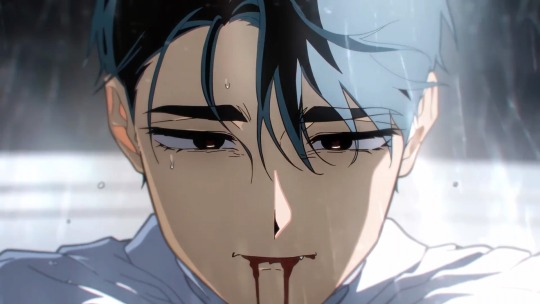
Another notable instance of Ivan's hair being down is the casino/karaoke room scene, which was quoted as an example for Ivan's emotional immaturity, his supposed "childishness".
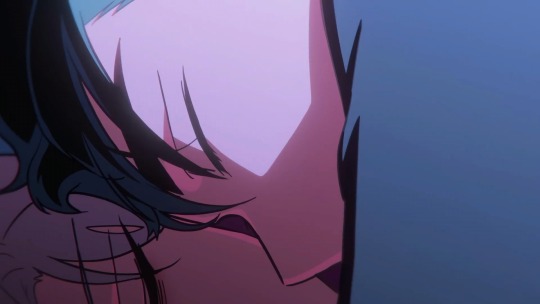
There's so much to be said about Ivan, including the neurodivergent/autistic traits that have been discussed by other people in more depth (notably his difficulty in understanding/expressing certain emotions, his masking, his often misconstrued actions, etc). There's also many of Ivan's more conflicting aspects (which seem mostly confined to the patreon? so I'm not sure if they're still planning to incorporate it into the publicly official content or if it was overhauled), but I'm going to stop here because I feel like this post is already pretty random and disconnected.
The gist of it is that I don't think I can give a solid answer on what Ivan is truly like. I'm not even sure if he can answer that, as he seems to be at war with himself quite frequently. Ivan, under his charming and cheery facade, is unable to feel or express emotion in the same way other people do, which causes difficulty and struggle in many other aspects of his life. Not like the one he has is completely his anyway, but, you know.
#this is sooooo disconnected i am so so sorry#i cannot word things coherently i have straight up just lost the ability as of late#i also would like to bring up that my use of “freak” and “toxic/doomed yaoi” is very ironic and in a lighthearted manner#i am in no way trying to dumb characters down into just those things. i really hope thats obvious#anyway i cant wait for alnst friday to drop and to kick me in the balls and say The Shit You Wrote Was Wrong Actually#this is just my thoughts right now in this moment. its not ALL of my thoughts but you know. i tried. hope thats okay#alnst#alien stage#alien stage ivan#alnst ivan#para.musing#asks
116 notes
·
View notes
Note
ik the draw of snoldemort is that it's as delicious and healthy as fibreglass-riddled cotton candy but have you ever considered them being happy?
yes, all the fucking time.
i am genuinely of the opinion that snape and voldemort are each other's most plausible romantic pairing, and while i sustain that opinion mostly thought the power of being delusional, i do think there's a legitimate grain of potential for snapemort to actually be strangely wholesome.
and so, since this is not the first request I've had for such a thing...

...here comes the snapemort manifesto.
i am also of the opinion that the series presents an extremely narrow and unhealthy definition of love - love as suffering and sacrifice and secrecy - which voldemort can't allow himself to experience because his life has unsurprisingly made him unwilling to suffer or sacrifice and which snape forces himself to experience to the clear detriment of his physical and mental health.
but love is also - fundamentally - about comfort and pleasure and not being bored in someone's company.
the canonical voldemort clearly actually likes snape. he also clearly enjoys spending a substantial amount of time alone with him - especially in deathly hallows: voldemort teaches snape how to fly unaided [the only death eater he seems to do this for], which is canon proof they were going on lots of romantic midnight swoopings; snape is obviously voldemort's source for the information that tonks and lupin have recently married, which means they're gossiping over glasses of wine just as much as they're planning to take over the ministry of magic; voldemort visits snape at hogwarts while he's headmaster, and while that's to steal the elder wand, he does say that he'll join snape once his grave-robbing is done...
the two are clearly intellectually compatible - not simply in terms of level of intelligence but in how that intelligence manifests itself. snape has a very voldemort-ish view of magic as something whose boundaries can constantly be pushed and whose authorities must constantly be challenged - that magic is really about power [and those too weak to seek it] - and it's clear in canon that dumbledore's unease about allowing him near the defence against the dark arts job prior to half-blood prince [when snape agreeing to kill him - and revealing how his love-as-suffering for lily drives him - finally convinces him that snape has rejected the dark side entirely] is because he fears snape's way of understanding magic, since it reminds him of voldemort [and - in reminding him of voldemort - reminds him of grindelwald].
but snape and voldemort's intellectual compatibility has something underpinning it which goes beyond how they understand magic and its purpose in the world. they think the way they do about magic because of the similarities in their life experience.
as harry walks to the forest, he sets himself, snape, and voldemort up as a trio - the "abandoned boys", whose lives have all been shaped, to varying extents, by dumbledore. but, while harry and voldemort are each other's narrative mirror - due both to the overtly mystical pseudo-fraternal [or, if you're so inclined, soulmate] connection which voldemort establishes between them by making harry a horcrux, and to their shared experience of orphanhood - harry actually has much less in common with either half of snapemort than they have in common with each other.
for example, while they're all half-bloods, harry's pureblood parent is his father - which gives him a wizarding name, and the social cachet this brings in a world which is so obsessed with blood, family, and male lineage. snape and voldemort have muggle fathers and muggle names, and this gives them a radically different social standing - even if they are, ostensibly, within the same blood-category - to harry.
similarly, while lily is muggleborn, she is still a witch, attends hogwarts, is known and liked within wizarding society, and - like many muggleborns seem to - separates herself entirely from the world of her birth in young adulthood to live in a way indistinguishable from someone born and raised in a magical family.
tom riddle sr. and tobias snape are actual muggles - which means they exist in a world completely divided [and with that division scrupulously maintained by the ministry] from the magical one. while snape is brought up by his birth family and voldemort isn't, their lives are still dictated by their fathers' experiences of, fear of, and disconnection from magic - and this shapes their lives very differently even than harry's experiences with the dursleys.
harry also heavily resembles his pureblood father, which provides similar social cachet. one device which canon uses a lot is the idea that every member of a pureblood nuclear family unit looks alike - narcissa malfoy is blonde and pale, while her sisters are dark-haired, so that she is immediately identifiable as lucius malfoy's wife and draco malfoy's mother; molly weasley is red-haired and freckly, even though these are weasley, rather than prewett, traits, for the same reason.
in having harry look so much like james - while its primary intention in doing this was clearly to help obscure lily's role in the series' central mystery for as long as possible - the text allows him to smooth his path through the wizarding world because he looks like a pureblood, like someone who is understood to belong in the society through which he moves.
voldemort, in contrast, looks exactly like his muggle father. which parent snape resembles is more ambiguous - in deathly hallows, harry says that snape "greatly resembled" his mother, but both order of the phoenix and half-blood prince suggest this isn't the case, and the person he resembles is his father. this makes more sense, since snape resembling tobias means that he - like voldemort - lacks the visual connection to the wizarding world which would - like a pureblood surname - ease his way of belonging within it.
snape and voldemort are also from the same working-class background and have the same experience of childhood poverty. harry - no matter the financial aspect of the dursleys' neglect of him - is still middle-class in the muggle world by virtue of being raised in a place like little whinging by people like vernon and petunia.
and - crucially - harry's financial circumstances and class-status change utterly when he enters the wizarding world. he ascends to being upper-middle-class; he has the resources to buy everything needed for school new - meaning there's no visual distinction between him and his wealthy peers caused by him having, as voldemort does, secondhand possessions; he is able to treat these possessions casually; and he never, ever worries about being able to afford them [when his nimbus is smashed by the whomping willow, he's upset because he liked the broom so much and because he's embarrassed by the circumstances in which it was damaged, he doesn't worry one bit about not being able to afford a new one - he also considers buying himself a firebolt and, of all the things the one sirius buys means to him, it never seems to seriously cross his mind that it's a stupendously expensive thing for a teenager to own].
harry's class ascendance once he enters the wizarding world also gives him access to the ways of connection and network-forming which dictate how magical society runs. while much of this is voldemort's fault - since it's bound up in the fact that harry is a celebrity - it's also evident that this isn't entirely the case. slughorn's attitude towards harry is influenced just as much by his fondness for lily - and the clear reading of canon is that, if harry was the average hogwarts student and james and lily were still alive, harry would be "collected" for the slug club in the way that cormac mclaggen or regulus black are: people that slughorn wants to keep around in case they offer him something, not people he wants to keep around so that he can manipulate and control them.
voldemort and snape, in contrast, exist outside the social networks which govern wizarding society by virtue of their birth [hence why voldemort sets up a parallel social order - with him at the top - among his followers].
voldemort plays the game the way he's expected to while at school - sucking up to slughorn; leaning in to being, as he puts it, "poor but brilliant" - and then rejects a lifetime of being dependent on slughorn's patronage [he could be minister for magic, but only "if you keep sending me pineapple"!] for the only job he can get on his own merits.
snape rejects the idea of playing the game while at school - the teen snape we meet in order of the phoenix is conspicuous in his difference, not only in appearance but in behaviour, from his peers, and the marauders' bullying of him is motivated just as much by his existence outside wizarding social norms as it is by james' sexual jealousy of his friendship with lily and his own deliberate provocation of james and sirius.
and he also rejects the social convention the series values [by which i mean, the series thinks the class system is good as long as the good guys are the ones insisting on maintaining it] in young adulthood. i bang on about this a lot, but it's clear in canon that the reason snape becomes a death eater - and also the reason why he thinks the death eaters will help lily, even though this initially appears to be nonsensical - is because voldemort offers him a chance to transcend the limitations placed upon him in a world with such a restrictive class system. voldemort is the only person who offers him the things he desires - power, respect, recognition - in a context in which his background is [seemingly] irrelevant.
there's an element of snape seeing what he wants to see here, of course. he's clearly voldemort's exception in terms of social class [just as bellatrix is his exception in terms of gender], and this is a grooming technique on voldemort's part which sets snape apart from the other death eaters and makes him more dependent on maintaining voldemort's favour than men like lucius malfoy or rodolphus and rabastan lestrange, who are inherent insiders to the elite male social circle from which the majority of the dark lord's minions are drawn.
but there is also an element of recognition in voldemort choosing snape which has a heavy blast of affection - platonic or otherwise - behind it.
one of the things which dumbledore gets wrong about voldemort throughout the six books in which he appears is that he believes that voldemort is secretive to the point of repression about his origins, childhood, and life experiences. instead, the canonical voldemort is a certified yapper - he needs virtually no prompting, as a child with dumbledore, a teen with harry, or an adult with harry, to start talking about his life in a way which gives quite a lot about himself away. the proto-death eaters we meet in half-blood prince know all about the teen voldemort's search for his lineage. barty crouch jr. knows his birth name. lucius malfoy is completely unbothered to hear harry state that he's a half-blood.
and this shouldn't surprise us - what orphan wouldn't be on a desperate quest to be perceived, to be understood?
snape is clearly voldemort's favourite because he's someone the dark lord implicitly understands - a clever, awkward, lonely boy searching for respect and power which the stagnant wizarding world refuses to give him. it stands to reason, then, that snape is also voldemort's favourite because the dark lord thinks that snape can understand him.
and, in a situation where he's actually given a chance to offer voldemort this understanding, snape therefore has the power to give the dark lord the thing he's been searching for his entire life - someone who knows who he really is behind the elaborate mask of unassailable majesty and loves him anyway.
none of this has to change the future - voldemort can still be a terrorist who kills his wife guy's only childhood friend, the snapemort will slap nonetheless.
but it still can.
#asks answered#asenora's opinions on ships#snapemort#severus snape#tom riddle#lord voldemort#my otp for life
63 notes
·
View notes
Note
With Bea being your potential canon Inquisitor, how would your protagonists feel about each other?
keir and minerva don’t easily trust each other. he sees someone manipulative and dangerous who is always acting for her own agenda and doesn’t take proper care of her own people. she sees exactly the kind of big heavily armed human man throwing threats and physical violence around that all her life experiences have taught her wariness and dislike for. they’re both very accustomed to being the scariest thing in the room and have a tendency to get territorial. however, they have ferelden in common (whatever keir’s other thoughts, he will always owe respect to the saviour of his homeland) and someone they love in common (whatever minerva’s other thoughts, she will always owe a helping hand to the person anders cares about, and who kept anders safe when she couldn’t be there). once they get to know each other and have some picture of why the other acts like they do, it’s not all bad. probably. eventually
keir always looks at beatrice and sees someone else. he sees his beloved sister, as the sheltered young andrastian noblewoman she might have been. he sees the sebastian who was once his friend, both his earnest kindness and his inclination for fanaticism. and he sees grand cleric elthina, a woman whose unassuming appearance never changed the amount of power she wielded and what a profound danger she was. he is never sure which of these is closest to the truth and it creates a mixture of protective sympathy and real fear he finds a little sickening. for her side, she finds him somewhat intimidating on a basic interpersonal level. which he... kind of fundamentally is, lmao. arguably they’re both free marcher nobles but they’re from such drastically different worlds of experience all the same. she gets most of her information on him from the excitement and romance of hushed gossip or varric’s stories. the reality has more harsher extremes than she would like. but she wants to believe he’s a hero and that they’re on the same side
minerva harbours particular dislikes of sickly-sweet earnestness, “overly” pious andrastians, warden hero worship, and people who simply have power drop into their lap and then don’t even have any idea what to do with it. beatrice is precisely a combination of those things. she is... not likely to be minerva’s favourite person in the world. however, on minerva’s return from wherever she is, she would forced to admit through gritted teeth that bea is not only genuinely well-intentioned but straightforwardly a political ally. she is literally going to be the one who legitimises the mage rebellion and ushers in the end of the circle of magi. on those grounds, minerva will contain herself from whatever the political equivalent is of unhinging her jaw like a snake and eating the poor girl alive. she would kind of be visibly containing herself from doing that if they ever met and it would be a pretty unsettling experience for everyone involved. bea is at present blissfully unaware of all that and continues to think of minerva as a great warden hero and would hotly defend her against any heinous rumours of blood magic and involving herself in politics more than wardens should
(bea’s perspective needs the most work here because she’s newer. i’m also working with current bea, as in, early game dai bea the bright-eyed idealist who believes andraste has chosen her. she definitely believes in heroes—in a fun, weirdly meta, a little self-important way, she’s probably very aware of the idea of herself, minerva, and keir as the three “protagonists” of the dragon age so far. i think the bea we end up with by trespasser might have a very different take on the other two after she ends up with a very different take on herself, but i haven’t gotten there yet. i suspect that at great personal cost she may even develop a personality minerva would find bearable to be around 😭)
54 notes
·
View notes
Text
thinking way too hard about this page from kanan: the last padawan and how much it shows about him as a character during rebels and also how that relates to ezra and their sacrifices at the end of the show
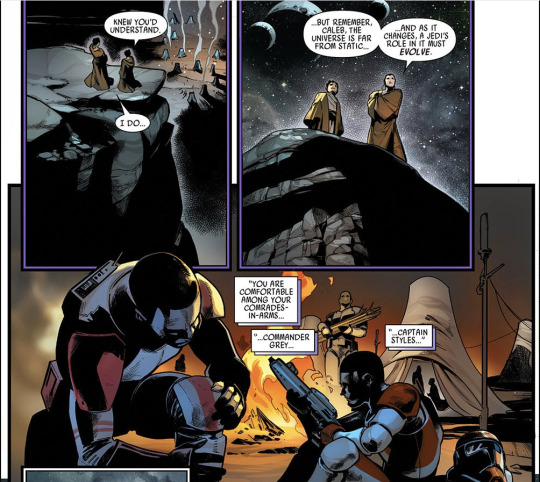
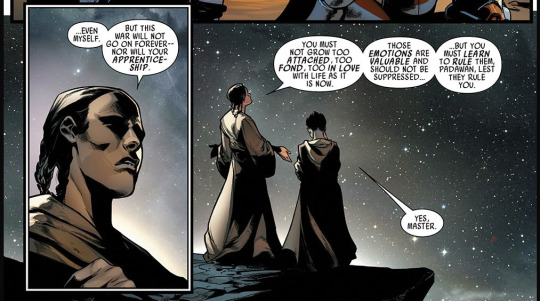
it's clear from the first episode of rebels that kanan has no qualms about attachment in general, which is a stark difference from most of the other jedi that we see. he cares freely and openly and deeply about all the members of the ghost crew. he might care too much at the beginning, but that's part of his journey as a jedi that we see throughout the show.
"you must not grow too attached, too fond, too in love with life as it is now" is a fundamental thing that kanan must remember during season 2 of rebels. because he DID become too attached to his life as it was with the ghost crew running around lothal, and when they join up with the larger rebel fleet, he doesn't like it and dislikes how things are changing. he has to relearn the ability to adapt and change before he's declared a jedi knight in the season 2 finale.
part of being a jedi is loving enough to know when it's time to go, which is something that kanan mastered. he and ezra leave at the end of season 2 to protect the rest of the rebellion, he teaches ezra to let sabine go with her family on mandalore, he helps hera reconcile with her past on ryloth. through love and attachment, kanan also learned sacrifice. he lost everything as he became kanan jarrus instead of caleb dume. he was forced to leave behind all the attachments of his former life in order to survive. he didn't learn to do that necessarily, he was forced into it out of necessity, which is very different than him consciously learning how to let go during rebels.
in rebels, kanan leaves by choice. in season 2, he knows that leaving is necessary to the survival of the rebellion. in season 4, he's standing on top of the fuel tank and holding back the explosion and he probably wants nothing more than to try and go with hera, ezra, and sabine. because that's his FAMILY. he loves them more than anything, but he knows that if he does not let go, they will not survive.
so he does. he sees them one last time, and then he lets them go and sacrifices himself to save them all, and in a way, this was the last lesson he ever taught ezra
its no secret that their sacrifices were meant to mirror each other, but here's the images again for reference
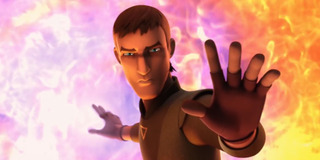
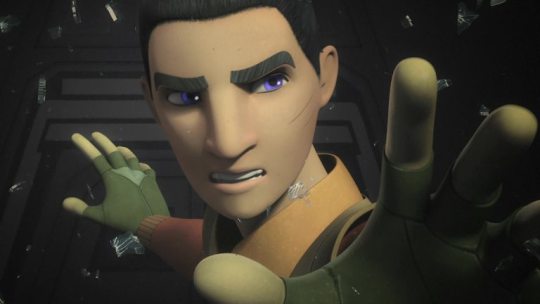
in his final moments, kanan teaches ezra about sacrifice. yes, you must love and feel and experience life, but to be a jedi knight, you must be able to master those feelings and do what you must for the greater good. in his actions, kanan was essentially repeating what depa told him when he was a padawan. "you must not grow too attached, too fond, too in love with life as it is now. those emotions are valuable and must not be surpressed, but you must learn to rule them lest they rule you". ezra fully learns that lesson during "the world between worlds" when he leaves the memory of kanan's death behind in the world between worlds and learns to stop his attachment from going too far.
and also like...kanan's life had FINALLY worked out when he died. hera just said that she loved him, they're back on lothal ready to free their home from the empire, he's figured out this whole jedi thing, and he may or may not know that hera is pregnant with their child depending on your interpretation. but he must let go. he cannot let his love and attachment stop him from doing what must be done for the greater good. he saves them, but he also leads to the empire blowing up their own fuel depot, which is the only reason the rebels can take back lothal. he put his purpose (saving the galaxy) over his feelings (because there was definitely a part of him screaming to go with his family, but he was able to control it in order to see the bigger picture)
the jedi fight for peace and the greater good, which at it's core requires immense selflessness and sacrifice and a clear head acting on logic rather than emotion. kanan and ezra were learning that together throughout the whole show, and one last time, kanan teaches ezra a jedi lesson that he finally figured out through trying to guide ezra through it
"but remember, caleb, the galaxy is far from static, and as it changes, a jedi's role in it too must evolve." jedi were keepers of the peace, then they were generals, then they were scattered teenagers who didn't know what to do in the wake of order 66, and now? now they are rebel fighters, once again getting at the heart of what it is to be a jedi. to be a jedi is to love, to sacrifice, to keep the peace. kanan and ezra show why jedi are KNIGHTS and not diplomats. they fight for peace, but they know it is just that: a bloody, brutal, violent fight, and that those fights require sacrifice in order to keep going. they both embody luthen's line from andor where he says "i burn my life for a sunrise i will never get to see", which is also a perfect way to think about why the jedi fight for peace. they really believe in it, and are willing to lay down their lives to make a peace that will never be achieved in their lifetimes.
(what's also crazy is that in this episode, we're essentially shown that kanan jarrus has found caleb dume again and therefore reconnected with his jedi past but that's a post for a whole other day)
i have so many feelings about this that basically boil down to: rebels is so well written and so underrated and kanan and ezra teach us far more about what the ideal jedi should be than any of the skywalker saga main characters (WHICH IS A VERY HOT TAKE I KNOW but it's my take)
#i am so normal about the shatterpoint lineage#and also kanan and ezra's sacrifices#totally and completely normal#star wars#star wars rebels#sw rebels#swr#kanan jarrus#caleb dume#ezra bridger#depa billaba#kanan: the last padawan#jedi knights#jedi code#i also love thinking about the jedi code#and how different characters interpret it#so maybe i'll post more things like this
76 notes
·
View notes
Note
I think a major problem hb is having right now - on top of everything else - is that there's a fundamental mismatch between the story Viv thinks she's writing and what she actually wrote
she thinks she's writing a complex but ultimately salvageable relationship where both parties are in the wrong (but mostly Blitz) and they need to change for them to come back together.
she thinks of Stolas' flaws as him being just a bit insensitive and oblivious, but they're not that big a deal (certainly not as much of a problem as Blitz's flaws, which as far as the framing of the show goes re: his interactions w/Stolas boil down to 'didn't love and cuddle Stolas when asked to/refused to disregard his own feelings and autonomy as a person')
I'm not surprised people keep saying Stolas reminds them of their abusers, whether relatives or partners.
because Viv doesn't seem to understand that someone having no ability to self-reflect or be self-critical isn't a tiny little flaw that can be fixed in the course of a conversation. It's a massive red flag. And she definitely doesn't seem to understand the power difference between the two since she keeps nerfing Stolas to avoid the topic as much as possible. even the last episode came off like 'have fun watching these two be a bit immature!' when what it actually was came across more 'here's 20 minutes of Stolas being his petty, worst self being framed as righteous anger!'
Even beyond the constant hypocrisy in numerous different ways it's why Stolas is so frustrating to watch and downright disgusting to have to listen to - because he's literally engaged in a pattern of gaslighting and the show keeps acting like it's not that, it's just him being slow to realize something he has no excuse not to have grasped by now: Blitzo does not like the way Stolas treats him
That is the fundamental problem, isn't it? And as long as it goes unaddressed, as long as that core is rotten, there's no salvaging the rest.
60 notes
·
View notes
Text
so i keep referencing the What Broke Delirium essay i plan to write but never actually writing it, so let's dig into that one!
because. sandman does not spoonfeed information. neil gaiman even said this in regards to the tv show, most shows are written these days under the assumption that audiences aren't really paying attention and need things spelled out for them - but sandman is not one of those shows. you gotta notice everything to get the full story
which honestly i love in many ways because it's part of why i'm never gonna run out of sandman essays to write - every time i reread the comics or rewatch the show i catch something new
and this is one of the first hidden bits of info i caught - remember this spread from overture?

it's a fucking gorgeous page and one of my favourite in the entire sandman run, both for the pretty art and the content itself (i love delirium SO much)
but let's just zoom in on the center of those flowers for a sec
because there's tiny tiny text written inside them
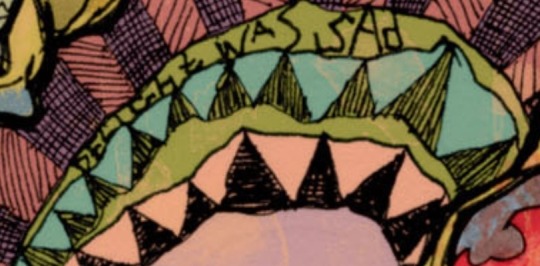
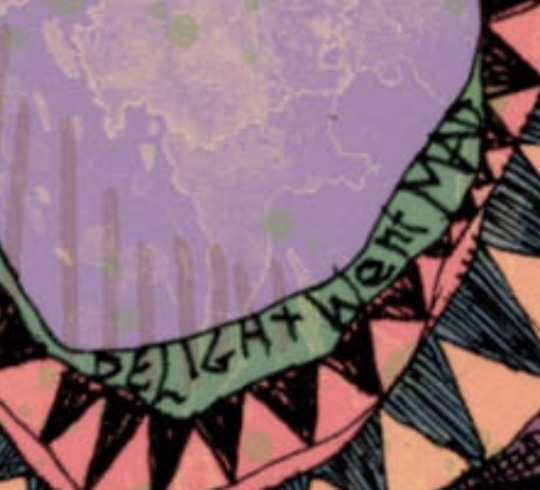
(for anyone who can't parse that, the first says "delight was sad", the second says "delight went mad")
now i've mentioned in many of my posts before that the endless all struggle to experience their own aspect, they are that thing, it exists for the most part out of their reach, and that causes problems for all of them
but i usually leave delirium out of these explanations
and that's because, for whatever reason, delirium is the opposite. and delight was too. i don't know what it is that makes her different, but while her older siblings all seem to be barred from their own domain by nature (or have to go to great lengths to experience it), del is too much of it. she's utterly absorbed by it. and while i think she's learned over the centuries how to be a bit more flexible (she understands the coins have two sides thing better than any of them, and can be lucid when she needs to), she didn't start out that way
we don't know what it is exactly that broke her. but we know why.
she had spent all of her life as the personification of happiness and joy, and someone who embodied those emotions. she appeared most as a little kid as delight, because kids definitely find it a lot easier to stay in that perpetually excited, happy mindset
but nothing stays that way forever. and this is where she is like her siblings, and why she's so familiar with the coin metaphor - when you're missing a fundamental piece of being human (either by being barred from your aspect or by being absorbed by it), that's not sustainable. it will tear you apart. dream refuses to accept that this is the case, and that breaks him. desire is equally stubborn about it, and they've outright admitted (in narration) that they're hanging on by a fucking thread
but death figured it out, when she realised she couldn't fulfill her function properly without learning what it was like to live. destruction figured it out when he ran away to go create. and delirium figured it out the hard way, because as soon as the world got a little too big for her singular aspect to make sense, it shattered
and it shattered slowly
there may have been some form of inciting incident, but she didn't become delirium overnight. i think a lot about her describing it as "growing up, or at least growing older", because that's both a very mature way to look at it and also an extremely tragic way to look at it, the idea that she knows too much, is never going to see the world the same way again, and that means delight is never coming back
(and that realisation is when she stopped presenting as a child and started presenting as a teenager)

and i think for a while, early days of being delirium, not delight, she didn't know what to do with that. delight broke into scattered pieces and the more fell away the harder it became to connect them
but she's also the only one of her siblings who's picked herself up from that. and it's why she's the wisest of them. because from there she learned
okay, so her innocence is gone. so delight isn't coming back. but there's still parts of her around, if delirium ever needs them. and the more she observes about the world, the more she experiences, the more different pieces she gets to add to the puzzle. they don't fit together, but that's del's real strength - they're not supposed to. she could have tried to reassemble herself piece by piece, like gluing together a broken statue, but why would she do that? then she'd be exactly as breakable as before, if not more so
instead she's more of a floating amalgamation of pieces, or rather, she's the ties between them. and because there's no set puzzle, she can put those pieces together in any order. she's no longer susceptible to the same problems as her siblings, because she's not missing anything anymore. she didn't lose parts of herself when becoming delirium, she gained some
and yes, no one is entirely without flaw - her downside is she's still susceptible to strong emotion, and when that overwhelms her mind she stops being any kind of person, we just see that floating amalgamation, until she can calm down. but that's the worst of it. her siblings may see her as broken, but she's more whole than she ever was as delight. and she's never going to break again
#hi have i mentioned i love her i love her#sandman comic spoilers#delirium of the endless#mine#meta#the sandman
815 notes
·
View notes
Note
sorry this became an essay but on the topic of john as misogynist, i know there are obviously more blatant examples in htn and ntn (and admittedly i'm only halfway through htn) but at least to me, i felt the misogyny was there even in gtn with the way he describes his relationship with / treatment of cytherea during the epilogue?
it's a different form of misogyny than the open disdain and degradation leveraged at mercy, but to me “She was the very best of all of us. The most loyal, the most humane, the most resilient. The one with the most capacity for kindness. I made her live ten thousand years in pain, because I was selfish and she let me" reads as a classic example of female objectification in the direction of the mother / martyr figure.
cytherea is defined here by her goodness and how she benevolently and selflessly served others. even though john fully names and takes blame for the pain he forced her to endure, he also places the blame on her for letting him do it. he denies her boundaries, complexity, and autonomy except where it would absolve him of guilt (see also, the scene in htn where john insists the murders at canaan house only happened because boe corrupted her). i know ableism definitely factors in to this attitude and treatment, but i don't think her being a woman was a small part of it either.
never apologize for writing me asks i LIVE for this. but you are absolutely correct in that this also falls back on Cytherea; admittedly it has been a hot minute since i read GtN so i appreciate a fresher take on this!
but yeah you're hitting my personal nail right on the head. from the way the other lyctors talk about Cytherea it really does look like she was subject at least some of the boys' club that the Mithraeum seems to be—(once again, the women began outnumbered and ended outnumbered; i'd love to know more about Cassiopeia and what her dynamic with the rest of the group is, although we get a glimpse from how John talks about her when he admits that she called his shit out for being "appallingly vindictive." would love to know how this translated over after her resurrection? hoping and praying we get more about her in AtN.) though it is, as you say, different from what is leveled at Mercy, and we know these dynamics can absolutely manifest in different ways.
where Mercy is shrill and "unlovable," Cyth is "gorgeous" and she "loved them all" which... isn't exactly degrading on its face but subsequent "poor little Cyth" by Augustine is definitely condescending!! (as much as it is endearing, in a way. they contain multitudes.) but i think most blatantly this behavior comes from John almost... victim blaming her? we can talk in circles for hours and hours about whether or not he could actually cure her cancer but it still stands that whatever he was enabling in her, she was (heavy quotation marks) "letting him do it."
John's insistence that Cyth was corrupted and denying her agency in genuinely hating him is really where i started to doubt that he just fundamentally doesn't misunderstand everyone he considers a close confidant. we already know he's completely fumbled Mercy & Augustine and that's how he ended up the object of two nefarious threesomes and also, like, exploded, but he's misunderstanding that everyone wants him dead because they want him dead. his actions are all the fault of other people and he cannot fathom not being adored, needed, and liked.
94 notes
·
View notes
Note
I always get a little frustrated by people saying the women of The Magnus Archives are rude or bitchy or somehow morally worse than the men across the board, and there are two main reasons for this.
For one, and this is the one I think is most notable, we are not seeing their side of the story. This whole podcast is from Jon's perspective, and most of our principal female characters hate his guts. To him, their behavior comes across as deeply unreasonable, so that's how it looks to the audience, but if we were seeing things from their perspective, if we got to see more of the motivation behind how they act, they definitely wouldn't come across that way.
Melanie is a very good example of this. In Jon's eyes, she's being irrationally angry and violent towards a man who just woke up from a coma because she's being infected by the Slaughter and thus needs help. In her eyes, she is understandably lashing out at the person who killed two of her best friends after *literal months* of singlehandedly fighting off constant assault by horrible meat monsters. If Jon and the audience *saw that*, their perspective would be different.
The second reason this frustrates me, and this is somewhat less notable but still betrays a pretty common fundamental misunderstanding of the text, is that *everyone* in The Magnus Archives, male or female, is an asshole sometimes. The entire premise of the show is that people are complicated and cannot be neatly divided into good guys and bad guys, and that trying to do so inevitably gets people killed. Even Martin, much as the fandom loves to infantalize him and act like he did nothing wrong, spends a really long chunk of time being passive-aggressive, manipulative, and generally a dick, because *that is how he's learned to protect himself from a world where everything wants to kill him*. I don't know how so many people's takeaway from Moral Nuance The Podcast was "if we put everything and everyone into categories everything will be fine".
Anyway, I'm on a computer and cannot use emojis, but pretend I put the little talking face here, please and thank you.
GOD AGREEING WITH YOU SO HARD I have nothing more to add these are my exact opinions - rosette
^^^ yeah . - deceit
48 notes
·
View notes
Text
Happy Grace/Pan Vibes For The Soul
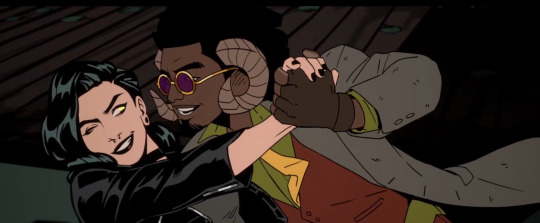


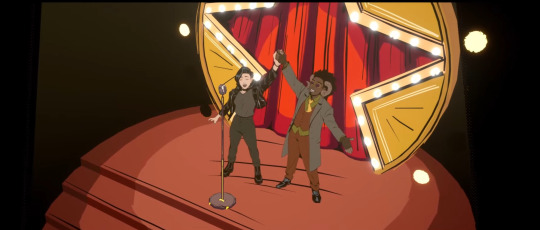
"How can I, with you in the way?"/"(Laughs) The floor is yours!"
First of all I'm honestly just so charmed by how genuinely delighted Pan seems to be at watching Grace finding her voice and learning to enjoy using her power, I think that's where I started to take a shine to him. (also seems quite central to his character/romance in general because it's a thing that recurs through their relationship -- he tells her "I'm enjoying it if you're enjoying it" straight out at one point and that's definitely always there in the subtext). He buys a music studio for her just in case she ever wants to return to making music again even when she's not the muse anymore just because he loves her singing and has seen it make her happy before, how is that not the sweetest goddamn thing in the world??? Pan and Oracle in shared first place as stans for Grace musically
For real though, 'I Can Teach You' is sooo... even when you don't join forces with him Pan teaches Grace so many things in that song, it's a thematic tutorial as well as a gameplay one in many ways. For me I think the most impactful subtexts are 'This is a tricky situation, change is here and it's difficult, but you have more control and agency here than you think' ("You're in control!" "It's your song!"), and this sense that, y'know... there can be joy and playfulness and discovery in setting out into the unknown, not just fear and uncertainty.


dude... I wanna be in cahoots with & sing playful duets with you for the rest of my life bro (amorous intent)
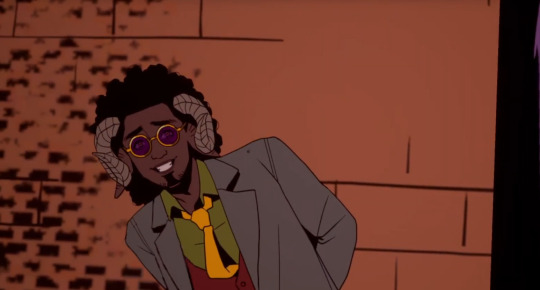
Pros: Hell yeah look at her go! 🥰
Cons: Uh-oh look at her go! 😬
I love that Grace can bring Pan's motif into 'Challenging A Queen' and be called the fuck out by Persephone btw. why u keepin' your guard up girl uwu

'you gave up the only thing worth having -- for your little mortal friend' he says, giving up everything for his little once-again-mortal friend literally the next day fhsdkjfhsad who are you fooling buddy? not even yourself at this point surely??? (dialogue for if you save Freddie by giving up the eidolon)
my observations on the grace/pan dynamic across the different personality traits (yes I've done a run of each romancing him I am normal about it):
Clever!Grace: Pan seems to set out to be a trickster mentor of sorts, and Clever!Grace flips the uno reverse card on him and goes ‘Not if I trickster mentor you first bitch be honest about your feelings or perish challenge engage’. Probably the most birds of a feather combination (and indeed it’s the Blue version of the soundtrack that shows off his romance — also his tie and glasses are on the cover for that one :) ).
Charming!Grace: Performative puppy dog eyes-off whenever either of them wants to get their way. 🥺4🥺. Pan is provably a soft touch from the Charming option to find Persephone before Challenging A Queen so I feel he probably tends to buckle faster but it’s a close thing. Local trickster god completely disarmed by someone being nice to him.
Kickass!Grace: “Be real with me or Imma kick your ass”/”Promise? ;)”/"...>:)"

I am always thinking about the way he steps up in The Trial when romanced (and the way it's the only one where Athena is genuinely shocked and appalled fhskadj). there is something about him that's like... he keeps protesting against 'innocent' and he's probably right haha, but there is certainly an almost fundamental lack of any active malice there that he doesn't fully admit to himself or to grace until this moment. he is doing this for grace, but it is also a confession about something really deep in himself that seems to be very vulnerable for him in its sincerity -- that he really doesn't mean to or more importantly want to cause harm (I don't wanna dance/with blood on my hands). admitting to his own basically good heart finally seems to be the bigger, scarier thing for him, more than facing the prospect of dying. he's experiencing the mortifying ordeal of being known and I for one am so proud of him

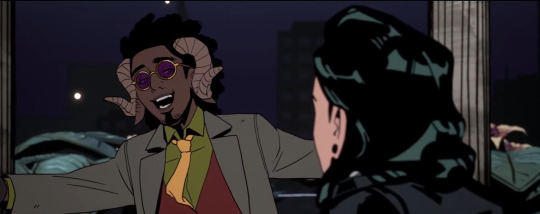
"I'm just here for the dance"
the way he sings that just to her and completely changes the meaning of it from what he said with it before, from using it to keep her out to inviting her in...
also can you imagine how badly the kill bill sirens must be going off in Grace's head in all variations of this scene no matter who steps up, considering what happened to Freddie just days before....... oof!
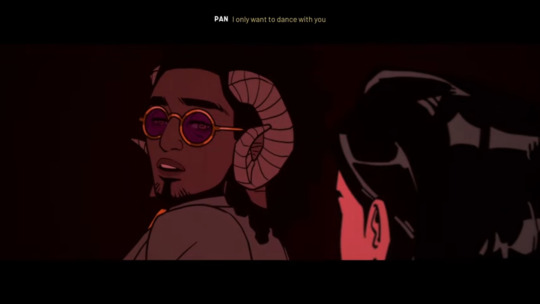
*incensed whisper* are you fucking kidding me with this what am I supposed to do with myself here


love these too
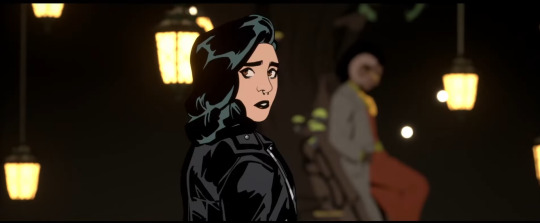



I really like the visual repeats of crossing the pond to the tree and back as a metaphor for them getting closer (or rather, him letting her closer, it is very much His Space). he retreats back there towards the end of 'Share This Dance', and that's the point where Grace puts her foot down and essentially says 'no. you come meet me honestly in the middle this time or this isn't happening'. and in 'The Trial' he does and then some!




I meant what I sang. I'm not a good man. If Athena had taken me up on my offer, the Idols would have been better off But I can try to be better. You make me want to try.
fun fact: if you break up with him after The Trial (YEAH you can still break off the romances at that point! it's wild honestly fsjadk), Grace tells him he should try to be better ‘for himself’ not for her... and he calls that (i.e. himself) ‘not much of an incentive’. My guy don’t make me break out the ‘Have you tried therapy’ prompt again. He takes it very calmly and gracefully under the circumstances but he's also like. quietly resigned and subdued. I tried it once for Science and never will again but there you go I bring my knowledge to this altar of sadness lol

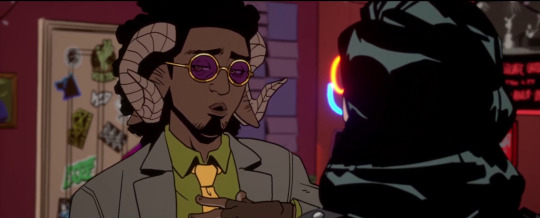
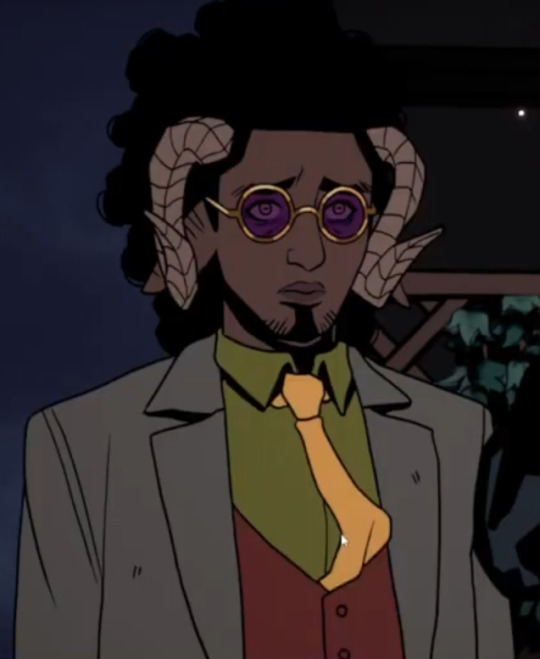

you see the thing is I would forgive him for just about anything too I understand why so many of the characters in-game can't stay mad at him for any length of time
he starts the game by asking her to take his hand and he ends it on asking her to take his hand (and she does)...
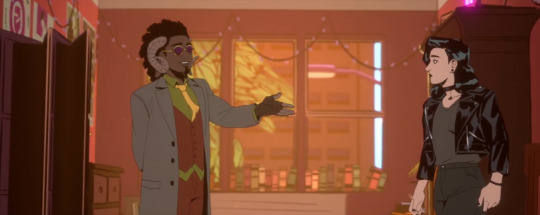
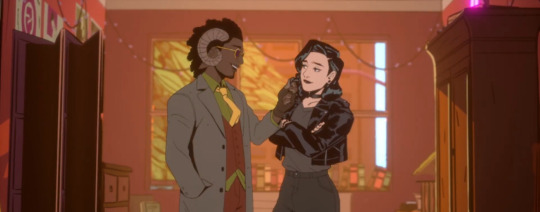
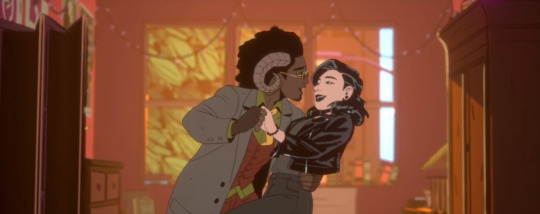

:') let's share this dance
#stray gods#stray gods pan#stray gods grace#grace x pan#better late than never! I said I would make this post and by god I meant it I love these two with all my soul#stray gods meta
87 notes
·
View notes
Text
All of the Animorphs main characters’ stories are very influenced by the dissonance between how they are perceived by the others from their perspectives, and the resulting roles they are fit into vs. their actual complexity, and I think it’s worth talking about Rachel from that perspective for a bit. The read the others tend to have on her character is that she’s ambitious; this incredibly confident, driven person who is dissatisfied with a normal life and just waiting for something better, which the war gives her. Cassie explicitly narrates as much in Megamorphs #4, while Jake says in #22 that she’s found her purpose in the war and he doesn’t know what she would do with a normal life anymore. Though I can’t remember the exact passages, I think the others think similar things of her. But when you actually look into Rachel’s character, you find that what they are misinterpreting as ambition/dissatisfaction with normal life/a desire to change the world and be a hero is actually two separate traits that, when put together in the same person, look a lot like that but aren’t.
First is that she fundamentally is a compassionate, morally dutiful person who feels she has an obligation to sacrifice and avoid the easy route to be good to other people. She doesn’t seek out situations where she will be responsible for many people’s well-being, but once she is there she goes all-in on it. When you compare situations in the book where one of the main characters has made an effort to be kind and do the right thing on a personal level rather than a “well if we save everyone on Earth from being enslaved that helps people by definition” level, she’s really only behind Cassie on this – feeling guilty about letting down Melissa as a friend and then risking her life on a mission to go out of the way to comfort her about her parents in #2, or in #1 when she says she cares about Tobias when he thinks nobody cares about him, even though they barely know each other.
In comparison, the most Jake has is a vague idea that his goal in life should be to live an average life and “not be a jerk” without any real self-examination of how to do that, Marco is often rude on an interpersonal level and doesn’t seem to care much about being a good friend or giving kindness to someone who needs it, Tobias is more of a loner who is very morally passionate about the greater cause but doesn’t extend it to really being there for other people (this isn’t because he is inherently cruel so much as, when we first are introduced to him, he is barely getting by in life and doesn’t have the energy to try to be a kind, beneficent person on top of that, it’s only the revelation of a greater cause that gives him the motivation to care about something), and Ax, the only one who was in an official military, initially largely outsources his sense of duty to that system and its ethics and doesn’t make much of an effort to be a good person outside of that.
I get the sense that Cassie and Rachel mutually recognize this quality in each other, and this is the reason for their friendship despite the narrative emphasizing how different they are and how weird it is that they are friends. As mentioned above, Cassie does interpret her as ambitious and “waiting for something else in life”, but she still sees that ambition as being prompted by a kindness and unshakeable desire to do good, as someone who doesn’t fall into the “mean popular kid stereotype” despite her looks and confidence. Meanwhile Rachel, when we see her thoughts about Cassie, similarly appreciates Cassie’s interpersonal kindness and steely resolve to enact it. Each recognizes, despite their many differences, the moral and aspirational idea they aim for in life in each other. Rachel’s manifestation of this trait looks different than Cassie’s.
The second quality is that Rachel loves, in the moment, the rush of being confident and powerful. It’s something she gets in shopping for clothing and being able to pick out the right deals like a successful predator, and it’s also something she gets in war, in the heat of battle and crushing the enemy. It’s not about adulation (#3 notes with her gymnastics performances that she hates performing in front of a crowd), just the personal feeling of power. The others aren’t wrong that she enjoys battle in a terrifying way they do not, but it’s ultimately driven by a feeling in the moment, not an inborn sense that life is purposeless that leads to seeking out war in the long term.
These two qualities combine to form a dynamic, a vicious cycle, with the rest of the group. When Rachel encounters something in life she believes is her duty to be a good person and help others, even though she doesn’t seek out such situations to feel special, she throws herself into it wholeheartedly (like as soon as she realizes she’s in a war now, in #4 I believe she changes all the inspirational quotations in her room to things like the Art of War). Combined with her general confidence, this leads to her throwing herself into danger bravely, which the others admire her for, and come to really need her in the role to give them the inspiration to risk their lives and untold horrors, which makes her play even harder into it to fulfill their need (even if she feels it is just a persona, as in #7 with her being “not brave, just blind”). This gets to the point where they, particularly Jake whose job it is to lead, use the others for their roles, and encourage them to keep those necessary roles, will outright discourage her from being anything else or showing any nuance or vulnerability (wee see this in #7 and #27). But the more she throws herself into danger and plays up her fearlessness and love of the fight, the more it triggers her love for the thrill and feeling of power of it which she recognizes is making her into her worst, cruelest version of herself. And the tragedy of it is that normally if she was recognizing she was a bad person in some way, she would stop everything to rectify that (like in #2 when she realizes she hasn’t been there for Melissa and immediately pivots to go as far as to risk torture and death to be there for her). But it’s precisely her commitment to goodness and duty that means she can’t this time, even if she knows the path is turning her into a monster, her friends and humanity as a whole still need her like this. She is the type of character whose greatest strength is her downfall. This is particularly symbolized with her relationship with Tobias, who due to being a hawk is entirely enveloped in the Animorph life and can’t live “normally”. Every time Rachel goes out of her way to be there for him, she’s separating herself from the life she would want and reinforcing her worst impulses, and sometimes her narration expresses frustration with this, but she can’t turn away because he still needs her.
And the others, even as they (particularly Jake) are parties to cajoling her into her role… as mentioned before, they don’t quite pick up on this. They mistake the long-term duty to do what’s right even if she absolutely doesn’t want it combined with the short-term thrill once she puts herself into a violent situation as one trait, a pride and ambition to be something greater than her normal life for the sake of glory. And while that combination of traits can look very similar (i.e her identification with hubristic classical heroes in #37), it’s fundamentally not the same, she expresses many times that she wants a normal life in the long term even if she enjoys fighting in the moment. She’s not constantly thinking about changing the world for the better unless the situation forces her into it (look at how she cares so little about politics that she doesn’t even know who her state’s governor is in #51, despite Marco expecting that she absolutely does and will chew him out for not knowing!) In fact, the whole point of #32 is that these are two separate traits, and when they aren’t put together she isn’t capable of the driven nature she normally exhibits, This misunderstanding leads to the others thinking she fully and uncomplicatedly wants all of this.
It also leads to them underrating her compassion, often acting surprised or disbelieving when she shows it even when it’s not actually all that uncommon. For example, her statement that she cares for Tobias in #1 being followed by Jake’s narration saying that this is unusual for her. There’s also one quote about this I particularly like in #25, near the end when the Venber are killed. Marco’s narration goes ‘ “Rest in peace”, someone said. It turned out to be Rachel ‘. It’s just one little line, but I find it fascinating how, even though the narrator Marco is attributing the rest of the dialogue completely normally, the idea that Rachel is capable of this solemn compassion is so against the image he has of her in her mind that he isn’t initially able to realize who said this, and that is really telling to Rachel’s dynamic with the rest of the group and how they view her.
Cassie and Rachel’s types of compassion are not the same, and that’s part of why the latter’s isn’t recognizes. Cassie is not just kind but diplomatic and able to keep calm in interpersonal situations, emphatic about the things she cares for most but willing to humble herself to get others on the same page. Rachel, on the other hand, comes from a place of confidence, willing to care but not to bend for others, and also a lot of anger deriving from that duty and compassion – towards those who harm others, like the Yeerks, for example, like in #38 when, realizing the Andalites aren’t coming and there’s no hope, she wants to at least take as many Yeerks down with her as she can and avenge humanity. Cassie, meanwhile, doesn’t let this passion for morality and justice lead her to revenge and instead goes in the opposite direction, seeing no point in killing if there can’t be a direct benefit of saving someone from it. And Rachel can just be plain angry and grumpy for reasons that aren’t about noble compassion, like when she is physically hurt (like #11 when she goes on a rant about the rainforest due to almost being eaten alive by ants). And most ironically, her anger and bitterness grows precisely when she is put in a trap where she can’t be a good person no matter what she chooses, where leaving makes her be uncaring and not doing her duty but staying will gradually turn her into a monster. This can be seen in #27 where her frustration at having to turn down T.T, both for himself and the normal life and escape from her darkest impulses he represents, because she owes it to Tobias, leads to her snapping at him and rejecting him in an especially cruel way, even though internally she feels compassion for him and doesn’t believe what she says.
And that’s really the core of Rachel’s nightmares and breakdown in #48, and the rage and defiance she feels at Jake in her dreams. It’s not just the surface level of paranoia that her friends see her as a villain and hate her and anger at being controlled when she runs wild. It’s rage at being used as a soldier to fulfill a role, being outright criticized and belittled when she is anything else, and doing so willingly because it’s the right thing to do, only for them to turn around and hate her for the very thing they wanted from her and see her as the ”bad guy of the group” for whom they can separate out all of their criticism of the dirty and immoral parts of war while never questioning their own role in it. It’s a rage she can’t let herself express in waking life because she knows her duty is to follow Jake, but she can definitely have subliminally in a way that shows up in her dreams. And it’s also a fear that whatever her excuses, whatever her intentions, it doesn’t matter because she really is a monster, she really is morally worse than the others, and it’s just pathetic to insist otherwise.
This particularly hurts her with regards to her relationship to Cassie. The thrust of their arc is that, as I said earlier, they start out despite their differences, recognizing the same kindness and unflinching moral conviction in each other as in themselves, but that same conviction leads them on entirely opposite paths. In #19 Rachel expresses frustration with Cassie quitting the team because it shows her worst fear is becoming like Rachel herself – how can Cassie care so much more about feeling for her own sake like she’s a good person than actually doing good in the world, when Rachel would very much want to do the same but is making a huge sacrifice not to, and then look at Rachel like there never was a similarity between them, Cassie was always the only good person and Rachel is revolting? In #48 she keeps telling herself it’s just paranoia, just a dream, just reading too much into it and her friends don’t really hate her, but then in #52 Cassie snapping at her, in Rachel’s mind, shows her worst fears to be true. And I think it’s one of the underrated tragic moments of the series how, when we see Rachel’s perspective facing her death at the beginning of #54, she believes only Tobias will object to Jake sacrificing her because he cares about Rachel. Cassie, she believes, will only be upset because of the emotional impact it will have on Jake having to make such a hard decision. We as readers know this isn’t true; in #53 Cassie’s reaction to finding out what is happening is to be furious at Jake and upset purely about Rachel, and when we see her point of view in #54 she is very much grieving for her. But since Rachel’s last interaction with Cassie was her telling her she’s a horrible person and confirming her fears, that’s what she believes, and Cassie never had a chance to tell her otherwise. Never knowing that the best friend she ever had still cared, had never truly written her off as a lost cause.
45 notes
·
View notes
Text
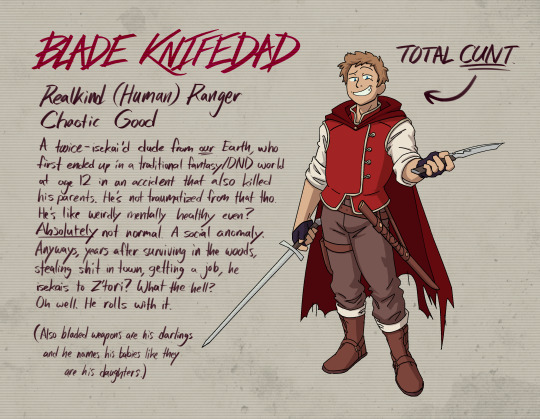
hi. this is my dnd character for toonkind dnd that i first made 7 years ago that ive recycled twice now because i wanted to finally play an ongoing campaign with him. for his third life, not only did i give him a design update, hes also has undergone a MAJOR overhaul in terms of personality and backstory tho i kept some bare basics the same (human ranger with urchin background who LOVES swords and knifes A LOT. and that he has an ambiguous age) the overhaul includes the isekai. and that hes a cunt now. but hes funnier now too lol.
im adding some more details and trivia about him under the readmore
so like if it isnt obvious the double isekai is meant to mirror the fact that i fucking played with him in 3 separate campaigns now. its part of him metatextually now lol. he was such a different guy tho. an EXTREMELY LOYAL guy. now hes significantly more selfish. and rude as hell. but hes not that to be mean or malicious. hes actually a pretty nice guy hes just extremely inconsiderate bc he prioritizes his own wellbeing most of the time. its how he had to grow up
copy pasting this tweet i wrote about him "blade at 15 was a guy that shouldve been playing halo while drinking monster but instead hes a guy stealing apples and eating mushrooms off tree bark. miraculously few instances of poisoning all things considered"
he wouldve been a fucking gamer otaku fr. he got isekaied in the mid 2000s and as a kid he fucking LOVED watching dragonball on saturday mornings. if he got to be a teen on earth, he would eventually found the anime and gaming subcommunities online BUT ALAS. he grew up trying to catch fish with his bare hands. or at least he did until he gave up quick and ate weeds.
also. despite the hardships. hes like. fine? somethings wrong with him. but its not trauma. he didnt mourn his parents much although its not like he couldve done anything with their freshly isekaied corpses when immediately hes being chased by fucking beasts. its okay they were like b-tier parents. (hes definitely not a normal person.)
he wandered the woods trying his best to survive alone and in spite of everything trying to kill him (including the shit he ate...) he ended up in a nearby(?) town and things got a bit easier after that. because he could fucking steal to eat real food now. he stayed in the woods on the outskirts of town bc no one showed grace to a thief and just dropped in every so often to swipe shit. steadily he learned forage (through sheer trial and error)
he was highkey a menace. but eventually in his late teens, a traveling party gave him an idea to like fucking. get a job. as something. he managed to make it work as a ranger/guide for hire
he fucking loves booze. he absolutely underage drank. when he could steal it. and later pay for it. and also even though he could pay for things as an adult, he still steals shit if he thinks he can get away w it (he has an absurdly (or at least pretty) high sleight of hand stat)
before he got isekai'd a second time, went through a CATASTROPHIC DIVORCE with an elf woman who he met in an expedition party who became enamored with him after he saved her life. the uh. fallout happened bc blade didnt realize (and still hasnt realized) that hes kinda aro (fundamentally did not understand her romantic intentions and thought she was just a friend wanted to hang out w him a lot. those were dates.) and his ex didnt realize how onesided it was bc she was so love with him. geez.
also. he was from arizona. hes half white half mexican. but with all the time spent not speaking spanish in a different fucking world, it made any spanish speaking skills he had atrophy to hell. it happens and it was bound to happen bc he was so young and had like no reason or opportunity to practice.
also he chose his name. he hated his lame ass name so much he was like "wait. i dont have to use it anymore." but he was 13 fucking years old. anyways he thought blade sounded cool for a name. knifedad happened later when he got his first knife. he still had a bad naming sense. he was 14.
also although his ethics are kinda wack, whats important to note is that he ultimately doesnt want anyone to like. die. its like his policy. save people that he can while trying his best to not die himself
he also has a soft spot for kids. whether hed bc a good dad is debatable but like. i think hed be a nice one
most important note: his longsword is named Darla, his dagger is named Samantha, the knife in his pack is named Nicky, and his newly acquired strange glowy sword is named lucia, and he wants a cool greatsword very very very fucking bad
i drew him in his under clothing also so that i could have a better sense for his body type when i designed his new outfit im adding it here too. he has a shitton of scars bc hes the type that pisses ppl off that they wanna shank him and also he routinely eats shit a lot. a lot of the scars in this sketch are pretty random except for one specific injury for a certain backstory event i have in mind
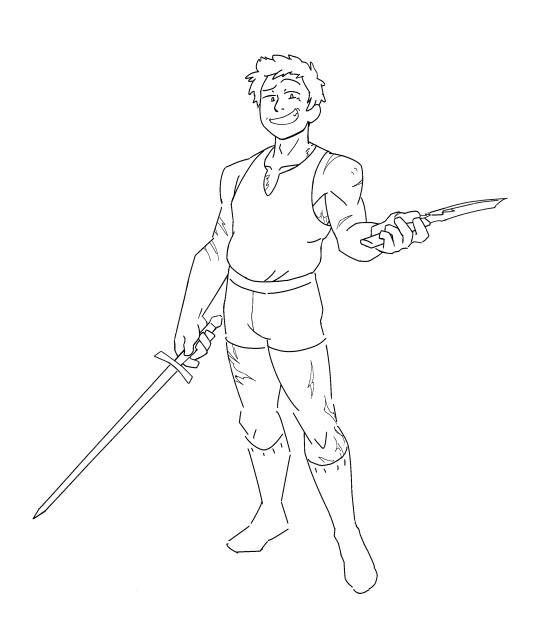
#man i said so much shit under the readmore damn.#guy who never shuts the fuck up!!!! yayyyyyyy#my art#my ocs#blade knifedad#toonkind dnd#dan has been waiting for this for 3000 years
45 notes
·
View notes
Note
it’s all so speculative and we’ll likely never fully knowwww (which is fun) BUT what do you think cooper and rachels relationship was actually like? do you think he genuinely loved her and wooed her? do you think he ever did? the wedding photo we see is so cute and i do genuinely believe he loved those kids so it can be done!!
Tbh I think that he was a great husband. My boy is a PERFORMER, he takes out the garbage, handles dinner Wednesday-Friday, he’s present with his children, he’s extremely neat and cleans on Saturday mornings, mows the lawn, you don’t have to ask him to do shit twice, king of back shots, and he probably eats box like a champ! If he does everything perfectly, he raises the least suspicion because no one suspects the perfect husband/father.
I think where he fucked up was assuming there is such a thing as a perfect performance and that it could make up for any minor missteps. Because at some point, the mask might slip, and no amount of good husbandry excuses the fact you’re working strange and late hours, smell like hospital cleaner, and actually fr murder people lol.
As for if he actually loved her; realistically speaking, technically yes. Psychopaths are capable of ‘loving’ things in their own way, but it’s fundamentally different than what a neurotypical person would consider love. He probably loved her in the way you would love a favorite sweater—once it gets worn out and isn’t useful to you anymore, you discard it because it’s an inanimate object you don’t have actual empathy for. He definitely loved Rachel as a tool. She gave him children, made him look more outwardly normal, he could easily control and manipulate her. But once she became useless to him and his pursuits, he had no problem killing her.
#unmasked cooper didn’t give a fuck about her fuck ass Bob or her feelings#��we could have managed’ like no empathy or regard for what he was putting her through just straight up only concerned with his goals#he was wiiillddd for that#cooper Adams#asks#hot take but I think cooper enjoys ‘pretending’ to be a husband#but his inability to control his impulses clearly gets in the way of that#diagnosed psychopaths are capable of love but they have to choose to love people because empathy is not a naturally occurring process#like they can live normal lives if they’re actively being treated for their condition
21 notes
·
View notes
Note
Do youn think Esther loved all of her children equally and how her relation with Elijah was?

I think Esther is a lot more of a complex character than people want her to be. It's easier if she can just be painted as an awful mother. But it is clear Esther did love her kids, all of them. Just differently. I don't think you can truly measure love in quantity, but she definitely had favorites and least favorites.
Esther loved Freya so much that losing Freya fundamentally changed who she was. She wanted to be a mother so badly that she was willing to do anything to make it happen. People often blame her more for trading Freya for the ability to have children, but don't blame Dahlia for making her own sister trade away her first child. Esther was young when she made that deal and didn't fully know what it meant. She also probably naively believed her sister wouldn't steal her child. But she loved Freya dearly.
Esther also loved Finn a great deal however their relationship grew twisted and toxic because of the loss they both shared. She essentially trauma bonded with her four year old child. Finn's trauma is rarely discussed but it is clear that his mother became his safety after losing Freya. He would do anything for her and Esther exploited this at times and even used him for emotional support. She did love Finn, but the trauma colored that love.
Elijah is her least favorite child. She basically admits it when she tells Klaus that he brought joy to their lives and made them a family again after losing Freya. She was heavily pregnant with Elijah when she lost Freya meaning Elijah's birth and multiple years of life did not bring their family joy or make them feel like a family. Although it's important to remember that while pregnant, she lost her child and moved across the ocean to a new land where she was alone with a volatile husband as this was also the period where Mikael starts becoming a bad/potentially abusive husband. I can't imagine she didn't experience some level of post-partum depression after having him. To top it off, Elijah favors Dahlia more than either of his parents. He likely reminded her of her sister and everything she had lost.
She views Elijah as more of a second parent. She expects him to always behave and keep his siblings in line. When the others step out of line, she has more sympathy for them. She offers Finn, Kol, Klaus, and Rebekah second chances in witch bodies but tortures Elijah, mocking him for what he is and that he is no longer her "noble son." We never see any exchanges between Elijah and Esther that have any type of warmth. This doesn't mean she didn't love him, but hey have a very strained/neglectful relationship.
Klaus is her favorite child. He was the only child she had with the man she truly loved. Even though Klaus seemed to get the brunt of Mikael's anger, he also gets the most protection from Esther. To the point that Finn is jealous of this attention. Klaus arguably did the absolute most vile deeds that should disgust Esther but she still showed love and compassion to him. He was the problematic child that could do no wrong.
Kol is pretty low on the ranks but still above Elijah simply because he had magic. Esther would have wanted to pass on her magic somewhere even is she wasn't truly practicing. She would have loved it but also feared it. Kol would have also driven her crazy because he was always so independent and often getting in trouble.
Rebekah has a special place in her mother's heart as the only daughter she had after losing Freya. It would have been painful at first as she looked so much like the child Esther lost, but she would have viewed it as a second chance. Rebekah always had a soft spot for Esther and losing her mother devastated her.
Henrik is pretty high at the top simply because he is the youngest. Henrik seemed to have a happy spirit from the few brief moments we see him. The baby of the family is always special. His death sent Esther into such a spiral that she created vampirism.
None of this means I think Esther is an awful mother. There are definitely terrible things she does, but at the end of it, she truly loved her children. Was she the best mother in the word, no. But we have to remember she was a young woman who was also a victim.
Thanks for the ask!
#esther mikaelson#freya mikaelson#finn mikaelson#elijah mikaelson#klaus mikaelson#rebekah mikaelson#kol mikaelson#henrik mikaelson#tvdu#the originals#tvd#the vampire diaries#the mikaelsons#anon ask#fandom asks#tvd anon ask#tvd ask#fandom answers#tvdu metas#metas#andrea831 metas#andrea831 metas esther#andrea831 metas mikaelson#andrea831 metas elijah#andrea831 metas kol#andrea831 metas klaus#andrea831 metas freya#andrea831 metas finn#andrea831 metas rebekah
102 notes
·
View notes
Note
Happy birthday! What are your thoughts and insights on everyone’s first interactions with hera?
thank you!! sorry this is late, but it's a really good question and i wanted to spend a little more time on it. hm.
minkowski is the first person hera met on the hephaestus (and so... kind of the first person she met at all; i don't think goddard scientists and higher-ups count.) and while "i'd heard sensus units prefer to go by their serial numbers" is very telling in... other ways, minkowski was just trying to be prepared. she accepts hera's correction, they both kinda mutually embarrass themselves... all things considered, much nicer than what hera is used to. the bar is low, but still. they really butt heads before they actually become friends, but the potential for that was always there.
as for eiffel, i have a post here that's relevant. i'm a big fan of hera saying eiffel's name + employee ID before he can introduce himself, because the implicit messaging is that he also has a name and a number, the same as her. i think the core of eiffel + hera's eventual relationship is that, fundamentally, she values the same things he does. she sees him blundering around in the dark with no regard for station protocol, with contraband cigarettes floating out of his pocket, and she likes that. "you hate rules as much as i do, don't you, doug?" i don't know if it's controversial to say, but i think hera was attached to eiffel long before eiffel really got attached to hera - and like, of course. the stakes are higher for her. she's met so few people ever, and eiffel is the only one who shares her priorities at all. he's the only one who just talks to her. "you've got a lovely ultraviolet halo around your head" is kind of an insane thing to say to a person you just met. but i think that's why it hurt her so much, and stayed with her so long, that he was initially scared of her, and made all of those flippant comments. she always wanted him to get to know her.
(maybe worth noting: both of those scenes include hera "keeping a secret" for the other person, but minkowski tells her directly not to tell anyone, as the commander. hera offers to keep eiffel's.)
hera is never formally introduced to lovelace - when lovelace asks about her, minkowski replies with a very technical description of her role on the station. most of their early interactions are similarly very technical. hera thinks lovelace just sees her as a tool and doesn't speak to her unless she needs something, but the confrontation in do no harm - which i would classify as the first big moment for their dynamic - makes it clear lovelace feels she's keeping a distance from everyone equally, and it isn't because of hera specifically. i think, in many ways, hera and lovelace become... two people in a group of friends who don't really know how to hang out without the others around. when it comes down to it, they have a lot in common and advocate for each other, but... lovelace shows affection by ribbing her friends and hera takes everything very personally, etc. they're both instigators in different ways and kind of clash without a buffer.
kepler... is interesting, because he asks about hera in very technical terms as well, and lets her correct him. it's definitely calculated, and gauging her reaction, but i wouldn't say it's malicious on its own - i don't think he's dehumanizing her, he's just intentionally downplaying how much he knows about the crew already. well, and setting up for...
maxwell. oh boy. okay. yes, it's nice that she knows hera's name right away, and it's nice that she addresses hera specifically + directly. that's the point, isn't it? hera isn't used to that basic courtesy, and it immediately makes her more receptive to maxwell. there's also something to be said about maxwell's much friendlier introduction vs. kepler's professional one - it gives the impression they aren't always on the same page, and so incentivizes hera to trust maxwell even if she doesn't trust the people maxwell is with. and, well, the way maxwell disregards hilbert doesn't hurt either. while i absolutely believe their dislike of him is sincere, i think it is also very intentional manipulation that maxwell talks down to and dismisses hilbert in front of hera, while kepler yells at him in front of eiffel.
we don't see hera's introduction to hilbert (pre-canon and she doesn't like him, makes sense) or jacobi (i don't think he even directly speaks to her until need to know. and she doesn't like him.) but both of them are very dismissive and dehumanizing towards her.
i suppose it's kind of interesting how the si-5 introductions are kind of a warped mirror of the original crew, then - a commanding officer who politely accepts her correction, someone she feels she clicks with, and someone who doesn't even regard her at all.
#thank you so much!! last long post for a while i promise i just did the two really long ones in a row#the next ones will be shorter. i mean. i hope so.#asks
27 notes
·
View notes